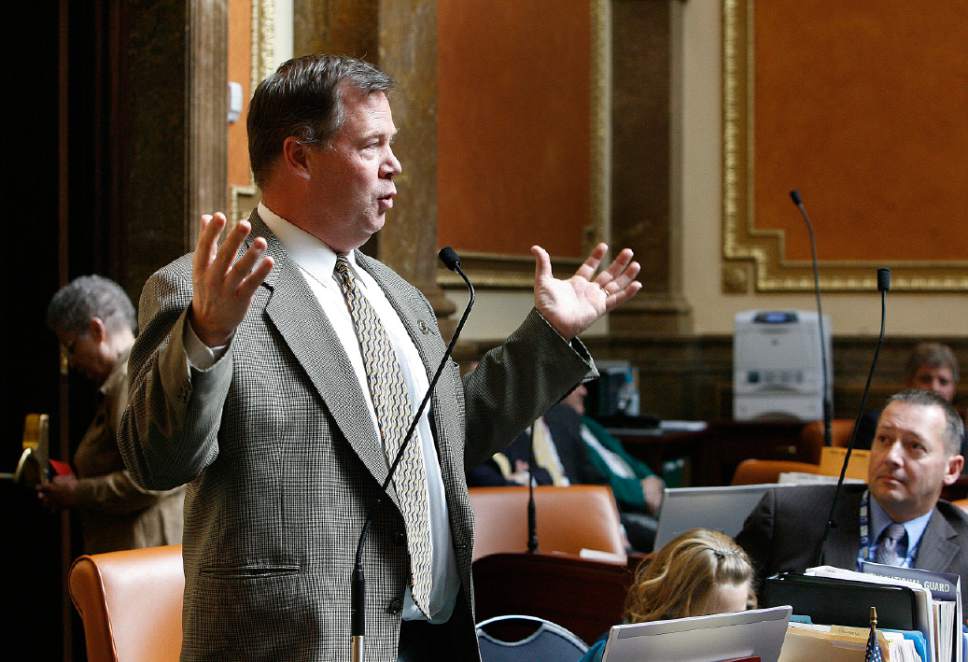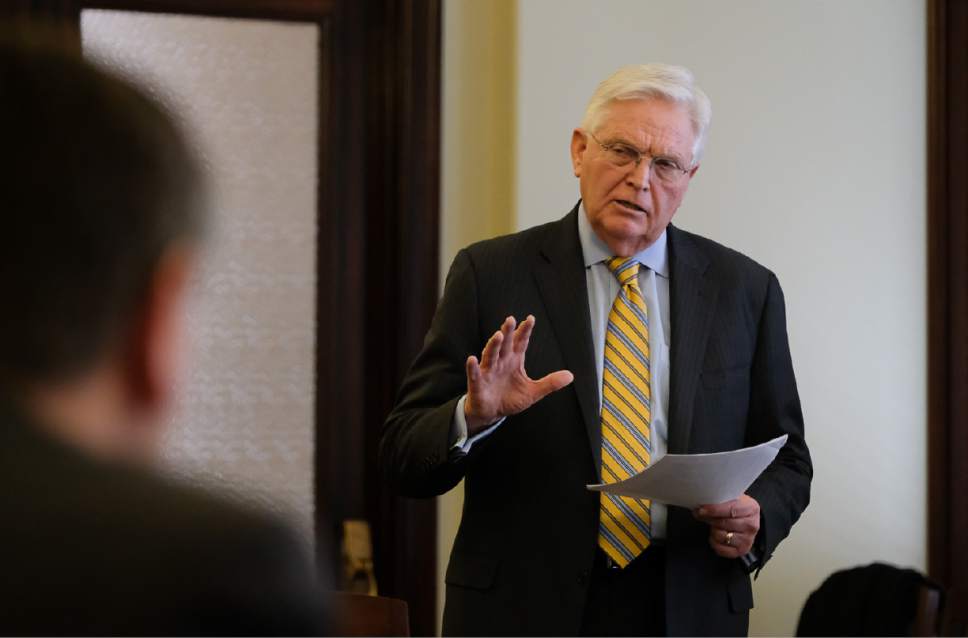This is an archived article that was published on sltrib.com in 2017, and information in the article may be outdated. It is provided only for personal research purposes and may not be reprinted.
The House on Tuesday endorsed sweeping changes in the state's juvenile justice system — reforms aimed at keeping more low-risk offenders out of detention centers, and in at-home alternative programs.
Representatives voted 69-7 to pass HB239 and send it to the Senate for consideration.
Rep. Lowry Snow, R-St. George, said the current system often puts first-time and low-risk offenders into detention centers, work camps or other out-of-home facilities, where they essentially learn how to be criminals from other more troubled youth.
HB239 seeks to keep low-risk youth offenders in their homes, when possible, using a variety of alternative programs.
Rep. Eric Hutchings, R-Kearns, said it "creates a process where we use the right-size solution for the right-size problem," without jumping directly to incarceration.
For example, Snow said one mother told him that her teenage son was put in a detention center for truancy. After months there making friends with tougher youth, he became a drug user.
Hutchings said 42 percent of youth now incarcerated are there on contempt charges, and another 37 percent are there for misdemeanors.
"To take a kid away from their parents, away from their school, away from sports … those are the things we need them to be doing to not become criminally engaged," Hutchings said. "We can fix this. We can do better."
House Majority Leader Brad Wilson, R-Kaysville, said, "We should not be taking youth away from their families and their schools and putting them in work camps … that cost taxpayers $200 a day, and research shows this doesn't help certain low-level offenders — in fact it can make them more likely to offend."
He added, "We've got to be smarter in how we deal with our juveniles in our courts and our juvenile system."
The bill would also limit the amount of time youth can spend in detention centers, put a cap on fees and service hours that a juvenile judge can order, and require that lawyers be provided to all juveniles charged criminally.
The legislation is a result of six months of study by the Utah Juvenile Justice Working Group, comprised of juvenile judges, attorneys, legislators and others appointed by the governor to study how youths are treated in the state's justice system.
The working group found that "nonsecure out-of-home placements" — facilities where youths reside, but the doors are not locked — can cost 17 times more than community supervision, but result in similar rates of reoffending.
That group reported that a bed at a non-secure facility can cost as much as $127,750 per year and, on average, nearly $44,000 a year. Community supervision, in which the child remains in his or her own home, costs the state up to $7,500 per year.
Despite the expected savings in some areas, legislative analysts say the changes would cost the state an estimated $3 million a year to implement, and some legislators doubted that full funding would be available this year.





